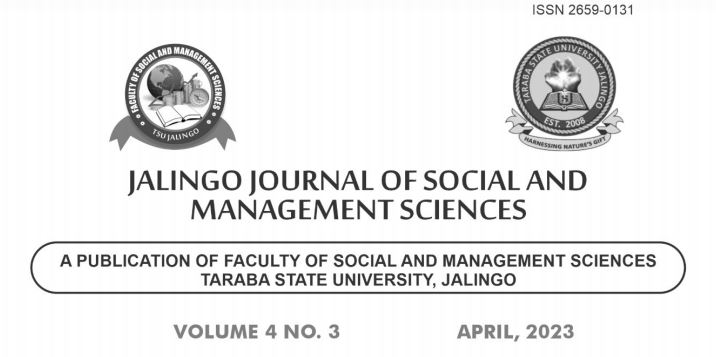Asymmetric Effects of Agricultural Production Components on Poverty Reduction in Nigeria
Keywords:
Asymmetric Effect, Agricultural Production, Crop Production, Livestock Production, Poverty Reduction, NARDLAbstract
Poverty still remains a great challenge despite the promotion of agriculture in Nigeria which needs to be unraveled. The paper examined the asymmetric effect of agricultural production components on poverty reduction in Nigeria between 1976 and 2022. Ex-post facto design was adopted. Data were sourced from CBN annual statistical bulletin, the National Bureau of Statistics, the World
Bank and Federal Ministry of Agriculture and Rural Development. Non-linear Autoregressive Distributed Lag (NARDL) was adopted for data analysis. Phillip-Peron Unit root tests revealed mixed order of integration while Co-integration Bounds test revealed the existence of long-run relationship between poverty, crop production and livestock production. Findings revealed that crop production has a significant positive asymmetric effect while livestock production does not have a significant positive asymmetric effect on poverty reduction in Nigeria. The paper concluded that the efforts made by the government, international donor agencies and other stakeholders to improve agricultural production have yielded long-term asymmetric effect on poverty. However, the support given to livestock production has not stimulated significant reduction in poverty and requires more commitment from the stakeholders to achieve the desired contribution of livestock production to poverty reduction in the country. The paper recommended that the government should sustain policies and programmes in crop production since they have impacted positively on beneficiaries’ poverty levels. Also, the Federal Government and international donor agencies should improve on their efforts toward funding, training and subsequent supervision of participants in livestock ventures in Nigeria by giving adequate training on modern techniques of animal
husbandry.

Downloads
Published
Issue
Section
License
Copyright (c) 2023 JALINGO JOURNAL OF SOCIAL AND MANAGEMENT SCIENCES

This work is licensed under a Creative Commons Attribution-NonCommercial 4.0 International License.
